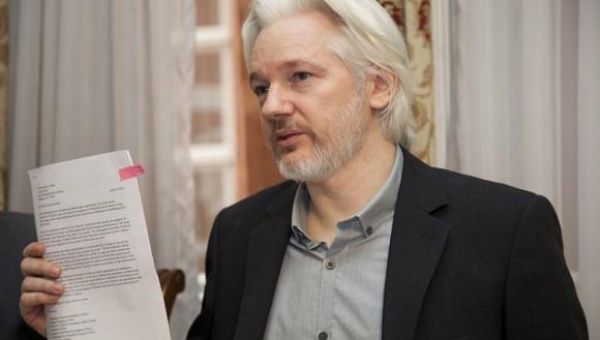18 January 2016 – The United States Court of Appeals for the Second Circuit has agreed to an emergency hearing to be held at 10 am on Friday, 22 January 2016, on an application from Hermitage Capital Management seeking to suspend the case of US vs Prevezon, to hear an appeal which will determine whether lawyers with a serious conflict of interest should be allowed to remain on the case.
Hermitage’s application arises out of U.S. law firm Baker Hostetler and its partner, John Moscow, switching sides in the Russian money laundering case from representing the victim – Hermitage, to representing the beneficiary of the crime – Prevezon Holdings.
Hermitage said in support of its motion for stay in the legal proceeding:
“A stay pending appeal is in the public interest. A lawyer’s obligation to preserve client confidences “touches upon vital concerns of the legal profession and the public’s interest in the scrupulous administration of justice.”
Hermitage’s motion is supported by the US Department of Justice, who said to the Appeals Court that the conduct of Baker Hostetler represents an “unheard of”, “extremely rare” and “egregious” case of conflict of interest given that the law firm not only switched sides but went further by accusing Hermitage, its former client, of the crime of which Hermitage has been the victim.
“The egregious situation seen here, where an attorney for a victim attempts to switch sides to represent a beneficiary of the offense, is extremely rare, and it is unheard of that such attorney would go further and accuse his former client, the victim, of committing the offense. Accordingly, courts have seldom been called upon to rule on such an extreme conflict, often because it is simply not done,” said the US Department of Justice in their affirmation of Hermitage’s motion.
On 18 December 2015, the district court judge Thomas Griesa in the Southern District of New York granted Hermitage’s motion to disqualify Baker Hostetler and John Moscow, finding it would be improper for Baker Hostetler to continue to represent defendants Prevezon Holdings because of Baker Hostetler’s prior representation of Hermitage. However, on 8 January 2016, Judge Griesa reversed his decision ruling that Prevezon’s right to the choice of lawyers was more important than Hermitage’s right to not be betrayed by former counsel.
Prevezon Holdings is owned by the son of a senior Russian government official and, according to the U.S. Department of Justice’s lawsuit, has been involved in laundering proceeds from the US$230 million fraud uncovered by Hermitage’s late lawyer Sergei Magnitsky. The US Department of Justice, having traced proceeds stolen in Russia to Prevezon’s real estate properties in Manhattan, filed a civil lawsuit seeking money laundering fines and forfeiture of US$14 million in Prevezon’s US assets. After the assets were frozen, Prevezon sought the services of John Moscow and Baker Hostetler. In spite of the obvious conflict of interest, John Moscow and Baker Hostetler agreed to represent alleged beneficiaries of the US$230 million crime – ignoring the fact that they had been previously hired by Hermitage to identify and bring to justice perpetrators and beneficiaries of this crime.
On 13 January 2016, Hermitage filed an emergency motion to suspend the proceedings in the asset forfeiture case against Prevezon until the issue of John Moscow and Baker Hostetler’s disqualification is resolved.
In supporting the Hermitage’s motion, the US Department of Justice stated:
“After taking almost $200,000 of Hermitage’s money to attempt to prevent Hermitage from being accused of committing the fraud, [Baker Hostetler’s partner] Moscow is now taking the money of an alleged beneficiary of the very same fraud to himself accuse Hermitage of committing the fraud.”
“Allowing the trial to take place in this fashion, and to expose Hermitage to such irreparable injury at the hands of its former counsel, would be a miscarriage of justice setting a precedent that would severely harm crime victims’ interests and could chill the cooperation of victims with law enforcement,” said the US Justice Department in its filing.
The US$230 fraud and money laundering case was uncovered by Hermitage’s Russian lawyer, Sergei Magnitsky, who was tortured and killed in Russian police custody after he had given testimony implicating Russian government officials in the scheme. To perpetrate the US$230 million fraud, the Russian criminal organisation stole three Russian companies belonging to the Hermitage Fund and then sought an illegal refund of US$230 million of taxes previously paid by those companies.
When Hermitage’s Russian lawyers reported the officials involved, the lawyers themselves became subject of retaliation from Russian authorities. In 2008, Hermitage hired Baker Hostetler’s partner John Moscow to protect Hermitage and its lawyers and executives from the retaliation. Mr. Moscow had previously been a specialist in combating Russian organised crime and corruption in the New York District Attorney’s office. He assisted Hermitage with the identification of the beneficiaries of the US$230 million fraud and liaising with the US law enforcement in bringing those beneficiaries to justice. Several years later the US Department of Justice traced some of the US$230 million proceeds to Manhattan properties owned by Prevezon and filed a lawsuit in which John Moscow and Baker Hostetler appeared for Prevezon.
The hearing will take place in New York in the Thurgood Marshall U.S. Courthouse, 17th floor, Room 1703 later this week, on 22 January 2016.
For more information, please contact:
Justice for Sergei Magnitsky Campaign
+44 207 440 1777
e-mail: info@lawandorderinrussia.org
www.lawandorderinrussia.org
Twitter: @KatieFisher__
www.facebook.com/russianuntouchables

